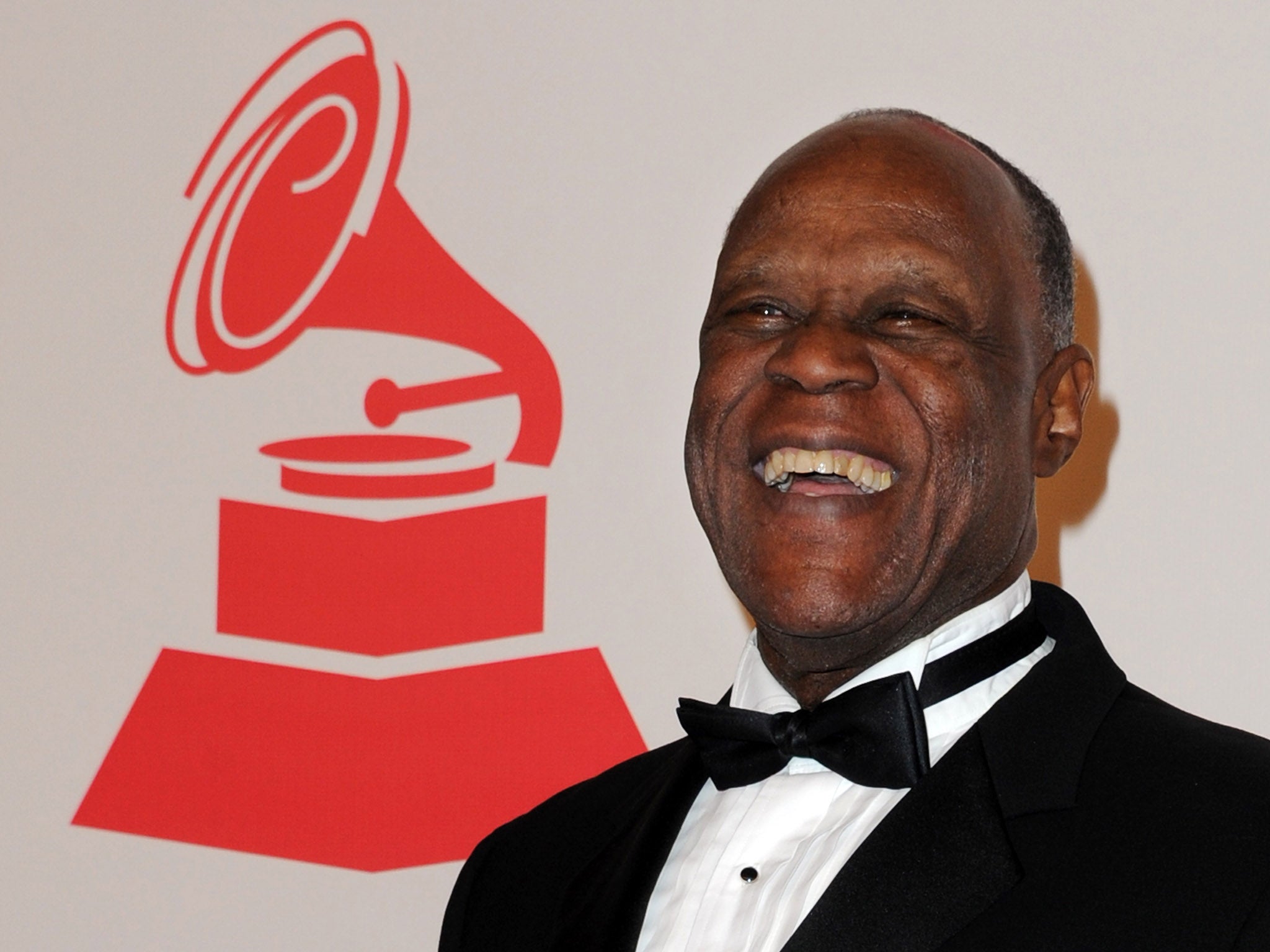Johnny Ventura: Dominican singer who modernised merengue
Lauded as a cultural ambassador, the musician recorded more than 100 albums and won six Latin Grammys

Johnny Ventura, a Dominican singer who helped modernise merengue music in the 1960s with his frenetic tempos, mischievous lyrics, rock-influenced backing band and joyous, hip-swinging stage presence, has died aged 81.
While singing at nightclubs in Santo Domingo, the Dominican capital, Ventura would scrape out a rhythm on the metal güira, keeping the beat as women chanted his name and couples spun across the dance floor. Slim and elegant, with a wry smile that reminded some fans of Elvis Presley, he helped spread one of the Dominican Republic’s signature music genres across Latin America and the US.
“He commands a warm baritone, magnificently calibrated hip movements and a band that not only plays machine-tooled syncopations but boasts a number of dancers who can challenge Ventura himself,” New York Times music critic Jon Pareles wrote in 1985.
Ventura recorded more than 100 albums − many of them featured his own lyrics and arrangements − and won six Latin Grammys, including a lifetime achievement award in 2006. Hits such as “Patacon Pisao” and “¿Pitaste?” were up-tempo celebrations of lust, intimacy and music itself.
“I love the bolero and today’s salsa,” he sang in “Merenguero Hasta la Tambora”, “but I’m a merengue singer up to my tambora,” a two-headed drum played in merengue. Other songs were gleefully provocative, as when he used double entendres to describe dancing in “La Agarradera” (“The Handle”) and told the story of a white couple with nine children, one of whom is mysteriously black, in “Capullo y Sorullo”.
Ventura came of age during the three-decade reign of Rafael Trujillo, a dictator who sought to promote merengue as the country’s national music and dance. Mixing European, African and Indigenous styles, it was played at luxe ballrooms and dance halls across Santo Domingo, acquiring a reputation as the staid soundtrack of the elite.

After Trujillo’s assassination in 1961, Ventura helped bring merengue back to the streets. His band, the Combo Show, wore casual tropical shirts, danced alongside him onstage, and featured conga drums, saxophones and keyboards as well as the traditional accordion, güira and tambora. Singer Joseito Mateo, a pioneer of the genre, later credited Ventura with developing a “happier merengue”.
“You see, when people are enslaved, music is held back, sad songs come out,” he told music historian Paul Austerlitz in an interview for the 1997 book Merengue. “But when Trujillo fell, we became a free people, and so Johnny Ventura came out.”
Ventura emerged as a Dominican cultural ambassador while performing around the world, including at Madison Square Garden in New York and the Orange Bowl in Florida, where he was crowned the 1987 King of Carnaval Miami.
“Other musicians – Chick Corea, Santana or Michel Camilo, to name a few – have laid the foundations for the Latinisation of American pop music,” he told the Miami Herald that year. “My objective is not to enter the American market but rather to have our music enter it.”
Indeed, merengue musicians such as Wilfrido Vargas and Juan Luis Guerra would acquire a devoted following in the US and elsewhere, although their rise and the ascendance of bachata music, another Dominican genre, cut into Ventura’s popularity.

Shifting his focus toward business and politics, he earned a law degree, worked as a distributor for Amway and served in the Dominican congress. In 1998 he was elected mayor of Santo Domingo, then a city of more than 2 million people.
Affectionately known as El Caballo Mayor (The Horse Mayor), Ventura found time to play occasional concerts even as he sought to clean up his hometown, where uncollected garbage had been a long-standing problem. He continued recording after leaving office in 2002, and was looking forward to getting back on the road after he was hospitalised last year with Covid-19.
Hours before his death, he posted an Instagram video showing him dancing with a fan. “I miss the human warmth of my audience,” he wrote in the caption.
Juan de Dios Ventura Soriano was born into an impoverished family in Santo Domingo on 8 March 1940. He wanted to be an architect but was unable to afford college, and at age 16 he won an amateur radio contest as a singer. He began winning weekly competitions, leading to a scholarship to take music and singing lessons.
“There was a big difference between the $12 my mother earned to support the entire family and the $60 I got from my scholarship,” he told the Herald. “Since I wasn’t really dying to become a famous performer, I took things easy. Things just worked out right. I think everything has happened to me at the right time, little by little.”
Survivors include his wife of 50 years, the former Nelly Josefina Flores; seven children; 17 grandchildren; and three great-grandchildren.
“When I die, don’t light candles for me, let the men dance and the women drink,” he sang in the horn-filled merengue song “Cuando Yo Me Muera”. He wanted no tears, he added, but instead “a party at the wake”.
Johnny Ventura, singer and songwriter, born 8 March 1940, died 28 July 2021
© The Washington Post
Subscribe to Independent Premium to bookmark this article
Want to bookmark your favourite articles and stories to read or reference later? Start your Independent Premium subscription today.


Join our commenting forum
Join thought-provoking conversations, follow other Independent readers and see their replies
Comments